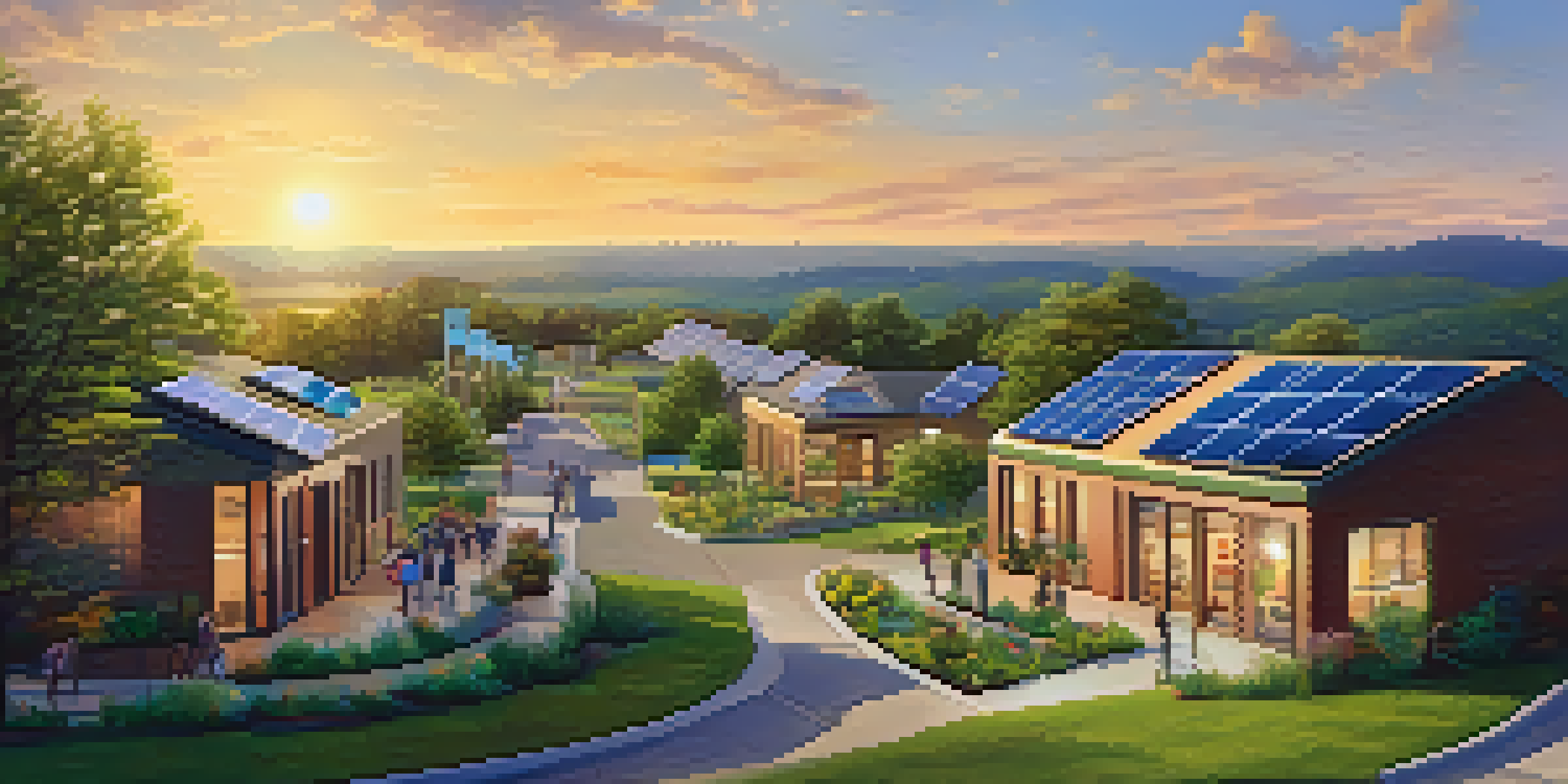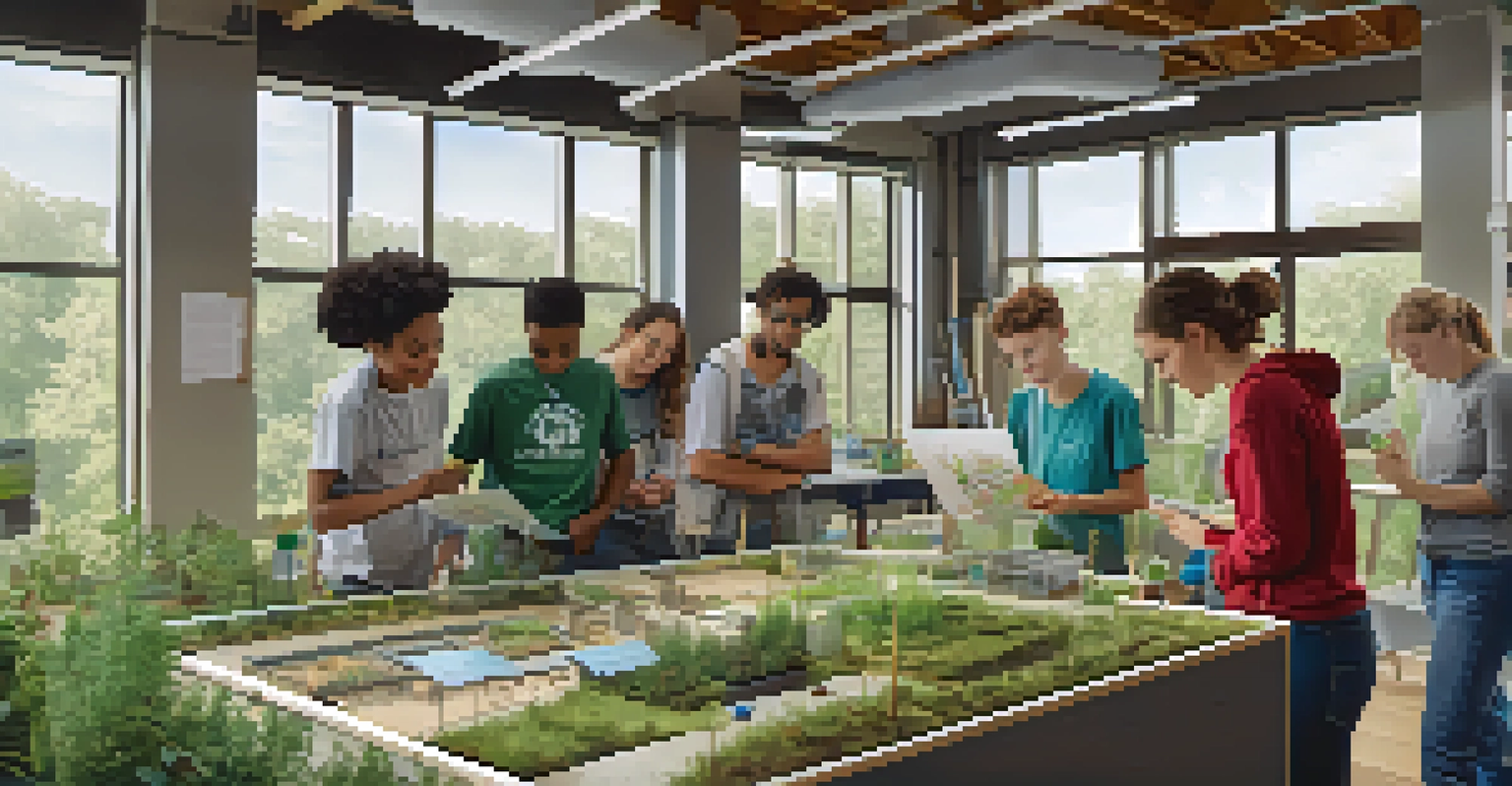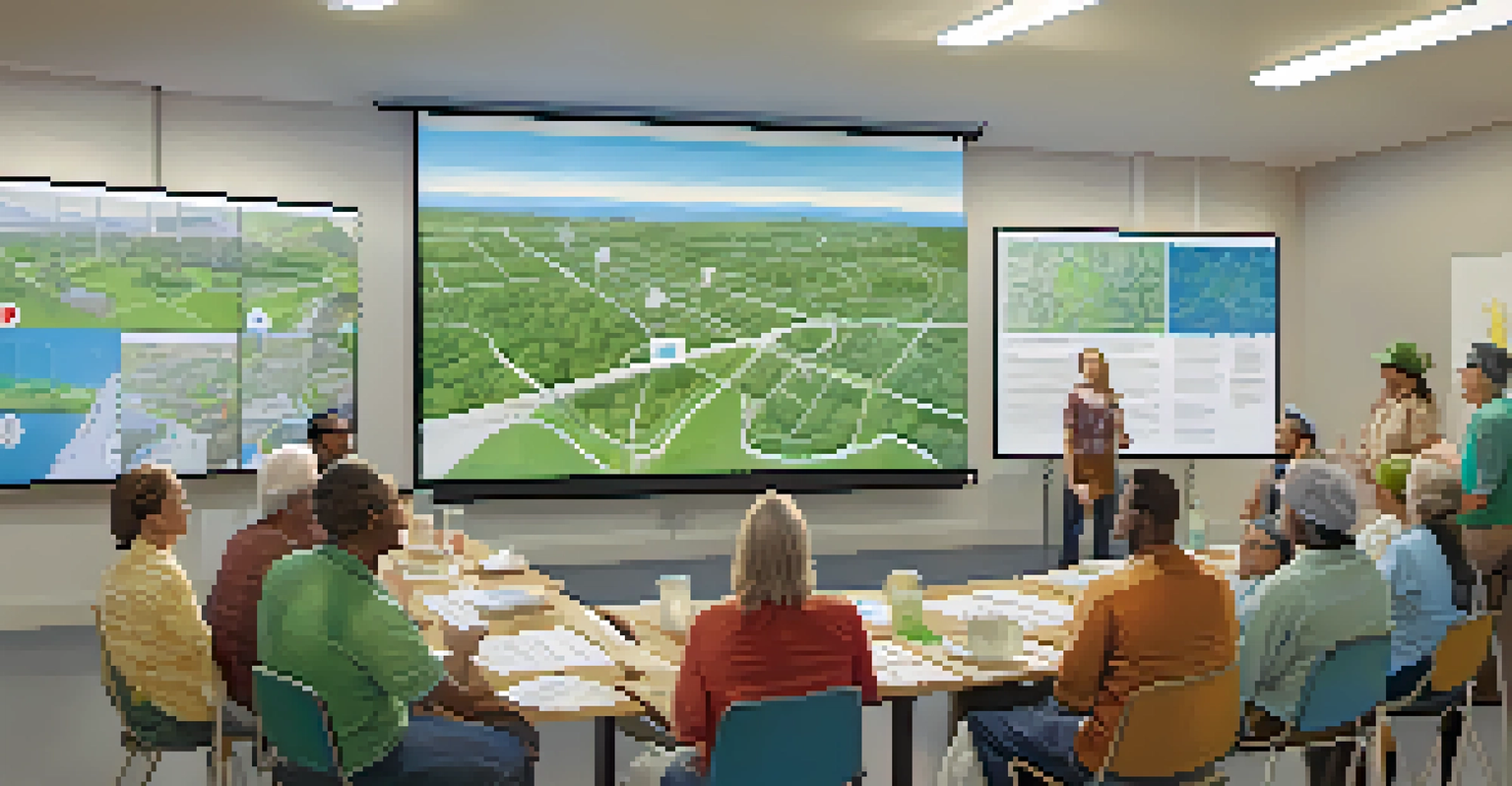Sustainable Engineering Practices Evolving in North Carolina

The Rise of Sustainable Engineering in North Carolina
In recent years, North Carolina has increasingly embraced sustainable engineering practices. This shift is driven by a growing awareness of environmental issues and the need for innovative solutions. Many local engineers and firms are now prioritizing eco-friendly materials and design techniques.
Sustainability is no longer about doing less harm. It's about doing more good.
For instance, the use of recycled materials in construction is gaining traction, minimizing waste while maintaining functionality. Additionally, renewable energy sources are being integrated into engineering projects, further reducing the carbon footprint. This evolution reflects a broader trend where sustainability is becoming a core value in engineering.
As communities recognize the importance of sustainability, the engineering sector is responding with creativity and commitment. The collaboration between government, businesses, and educational institutions is fostering an environment where sustainable practices can thrive.
Innovative Green Technologies Shaping the Future
North Carolina is at the forefront of developing and implementing green technologies that are transforming engineering. Innovations such as solar panels, wind turbines, and energy-efficient systems are becoming standard in new projects. These technologies not only contribute to sustainability but also enhance energy independence.

For example, many municipal buildings are now incorporating solar energy systems, which significantly reduce operational costs and carbon emissions. Furthermore, the state's commitment to supporting research and development in green technology is paving the way for future advancements. This proactive approach positions North Carolina as a leader in sustainable engineering.
Sustainable Practices on the Rise
North Carolina is increasingly adopting sustainable engineering practices driven by community engagement and eco-friendly innovations.
As businesses and residents increasingly prioritize sustainability, the demand for these innovative technologies is set to grow. This creates exciting opportunities for engineers to explore new solutions that address environmental challenges head-on.
The Role of Educational Institutions in Sustainability
Educational institutions in North Carolina play a crucial role in promoting sustainable engineering practices. Universities and colleges are integrating sustainability into their curricula, preparing the next generation of engineers to tackle environmental challenges. This focus on sustainability not only equips students with essential skills but also fosters a culture of innovation.
The greatest threat to our planet is the belief that someone else will save it.
Programs that emphasize hands-on experience, such as internships and research projects, allow students to engage with real-world sustainability issues. Collaborative initiatives between schools and local communities provide practical learning opportunities, further embedding sustainable practices into the educational framework. This synergy enhances the overall impact of sustainability efforts.
Moreover, partnerships between academia and industry are driving research in sustainable engineering. These collaborations often result in groundbreaking projects that push the boundaries of what is possible and set new standards for the industry.
Community Engagement and Sustainable Development
Community engagement is a pivotal aspect of advancing sustainable engineering in North Carolina. Local organizations and residents are increasingly involved in discussions about development projects, ensuring that sustainability is a priority. This grassroots involvement not only helps in addressing community-specific needs but also fosters a sense of ownership among residents.
For instance, public forums and workshops allow citizens to voice their concerns and suggestions regarding new engineering projects. This collaborative approach leads to more effective solutions that benefit both the environment and the community. Such engagement is essential for creating a transparent and inclusive process.
Educational Institutions Lead Change
Universities in North Carolina are integrating sustainability into their curricula, preparing future engineers to tackle environmental challenges.
Additionally, successful community-driven initiatives serve as inspiring examples for other regions. These projects often showcase how collective action can lead to sustainable outcomes, encouraging other communities to adopt similar practices.
Policy Changes Supporting Sustainable Practices
Recent policy changes in North Carolina are bolstering the shift toward sustainable engineering. Legislation aimed at reducing carbon emissions and promoting renewable energy sources is paving the way for more environmentally friendly projects. These policies create incentives for engineers to adopt sustainable practices.
For example, state funding for green infrastructure projects has increased, allowing municipalities to implement innovative solutions. This financial support is critical in overcoming the initial costs associated with sustainable engineering. It also encourages collaboration between public and private sectors to achieve shared sustainability goals.
As these policies continue to evolve, they are likely to shape the future of engineering in North Carolina. Engineers and firms that align with these initiatives are not only contributing to environmental health but also positioning themselves as leaders in a competitive market.
Challenges Facing Sustainable Engineering Initiatives
Despite the progress being made, sustainable engineering in North Carolina faces several challenges. One significant hurdle is the initial cost of implementing sustainable practices, which can deter businesses from making the switch. This financial barrier often leads to a reliance on traditional methods that may not prioritize environmental concerns.
Additionally, there can be a lack of awareness or understanding about sustainable engineering among stakeholders. This gap can hinder the adoption of innovative practices, as decision-makers may not fully grasp the long-term benefits of sustainability. Education and outreach are essential to bridge this knowledge gap.
Policies Boost Green Engineering
Recent policy changes in North Carolina are providing incentives for sustainable engineering projects, promoting renewable energy and reducing carbon emissions.
Finally, regulatory hurdles can also complicate the implementation of sustainable practices. Navigating the complex landscape of local, state, and federal regulations requires significant time and resources, which can be particularly challenging for smaller firms. Addressing these issues will be crucial for the continued evolution of sustainable engineering.
Future Trends in Sustainable Engineering
Looking ahead, several trends are likely to shape the future of sustainable engineering in North Carolina. One emerging trend is the increased adoption of smart technologies, which can optimize energy use and enhance sustainability. These technologies, such as smart grids and IoT devices, allow for better management of resources and contribute to overall efficiency.
Moreover, the focus on resilience in engineering projects is becoming more pronounced. Engineers are increasingly considering the impacts of climate change and extreme weather events, leading to designs that prioritize durability and adaptability. This forward-thinking approach ensures that communities can withstand future challenges.

Lastly, the integration of social sustainability into engineering practices is gaining traction. This involves considering the social implications of engineering projects, such as community well-being and equity, alongside environmental considerations. As engineers embrace a holistic view of sustainability, the positive impact of their work will extend beyond the environment.
Conclusion: A Sustainable Future for North Carolina
In conclusion, North Carolina is on a promising path toward sustainable engineering practices. Through the collaboration of educational institutions, community engagement, and supportive policies, the state is fostering an environment where innovation can thrive. These efforts are not only addressing environmental challenges but also enhancing the quality of life for residents.
As sustainable engineering continues to evolve, the commitment to eco-friendly practices will become increasingly integral to the state's identity. By prioritizing sustainability, North Carolina is setting an example for other regions to follow, showcasing the benefits of a collective approach.
Ultimately, the journey toward sustainability is a marathon, not a sprint. With each step forward, North Carolina is not only building a more resilient infrastructure but also inspiring future generations to embrace sustainable practices in their own lives.